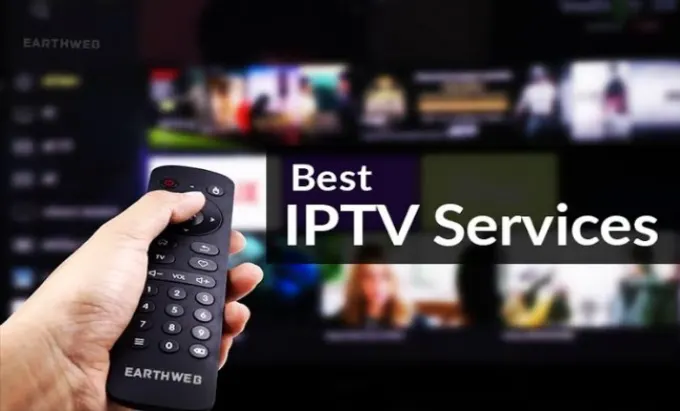
In recent years, IPTV (Internet Protocol Television) has emerged as a popular and innovative alternative to traditional television broadcasting methods. This technology leverages the power of the internet to deliver television content, providing viewers with a more flexible, interactive, and personalized viewing experience. This article explores the fundamentals of iptv abonnement, its benefits, and its potential impact on the future of television.
What is IPTV?
IPTV stands for Internet Protocol Television, a system where television services are delivered over the internet instead of through traditional terrestrial, satellite, or cable television formats. Unlike downloaded media, IPTV offers the ability to stream the source media continuously, making it possible to start playing the content almost immediately.
How Does IPTV Work?
IPTV works by transmitting television signals over the internet using the Internet Protocol (IP). The content is usually delivered through a managed network, ensuring better quality and reliability compared to open internet streaming services. Here’s a simplified breakdown of how IPTV functions:
- Content Acquisition: IPTV providers acquire content from various sources, including live broadcasts, video-on-demand (VOD) libraries, and pay-per-view events.
- Content Encoding: The acquired content is encoded and compressed into a digital format suitable for internet transmission.
- Content Delivery: The encoded content is delivered to viewers through a private or managed IP network. This network infrastructure ensures minimal buffering and higher quality of service.
- Content Viewing: Users can access the IPTV service through various devices such as smart TVs, set-top boxes, smartphones, tablets, and computers.
Types of IPTV Services
IPTV services can be broadly categorized into three main types:
- Live Television: Similar to traditional broadcast TV, this service streams live television programs as they are being broadcasted. It includes real-time sports events, news broadcasts, and live TV shows.
- Video on Demand (VOD): This service allows users to select and watch video content whenever they want. VOD libraries include movies, TV shows, and other pre-recorded content.
- Time-Shifted TV: This service enables viewers to watch TV programs that were broadcasted earlier. It includes catch-up TV, which lets users watch shows that aired hours or days ago, and start-over TV, which allows viewers to restart a live show from the beginning.
Benefits of IPTV
IPTV offers numerous advantages over traditional broadcasting methods:
- Flexibility and Convenience: Viewers can watch their favorite content anytime and anywhere, as long as they have an internet connection.
- Interactivity: IPTV services often include interactive features such as pause, rewind, fast-forward, and a program guide, enhancing the viewing experience.
- Personalization: Users can customize their viewing preferences, create playlists, and receive content recommendations based on their watching habits.
- High-Quality Viewing: Managed networks used by IPTV providers ensure higher quality and more reliable streaming compared to open internet services.
- Cost-Effectiveness: IPTV can be more cost-effective than traditional cable or satellite TV subscriptions, especially with the availability of various subscription packages tailored to different needs and budgets.
Challenges and Considerations
Despite its many benefits, IPTV also faces several challenges:
- Internet Dependence: The quality of IPTV services heavily depends on the quality and speed of the user’s internet connection. Poor internet connectivity can lead to buffering and reduced picture quality.
- Bandwidth Requirements: High-definition and 4K streaming require substantial bandwidth, which can strain network resources and affect performance.
- Legal and Regulatory Issues: IPTV services must navigate complex legal and regulatory landscapes, particularly concerning content licensing and copyright issues.
- Competition: The market is highly competitive, with numerous providers vying for market share, which can make it challenging for new entrants to establish themselves.
The Future of IPTV
The future of IPTV looks promising, with several trends shaping its evolution:
- Integration with Smart Devices: As smart homes become more prevalent, IPTV services will likely integrate seamlessly with various smart devices, offering more interconnected and intelligent viewing experiences.
- Enhanced User Experience: Advancements in technology will lead to more sophisticated user interfaces, better content recommendation algorithms, and more interactive features.
- Expansion of Content Libraries: IPTV providers will continue to expand their content offerings, including exclusive shows, movies, and live events to attract and retain subscribers.
- 5G and Beyond: The rollout of 5G networks will significantly enhance IPTV service quality by providing faster and more reliable internet connectivity, enabling ultra-high-definition streaming and reducing latency.
Conclusion
IPTV represents a significant shift in how television content is delivered and consumed. By leveraging the power of the internet, IPTV offers a more flexible, interactive, and personalized viewing experience compared to traditional broadcasting methods. Despite some challenges, the future of IPTV looks bright, with continued technological advancements and increasing consumer demand driving its growth and evolution. As the industry continues to innovate, IPTV is poised to become the dominant mode of television delivery in the coming years.
